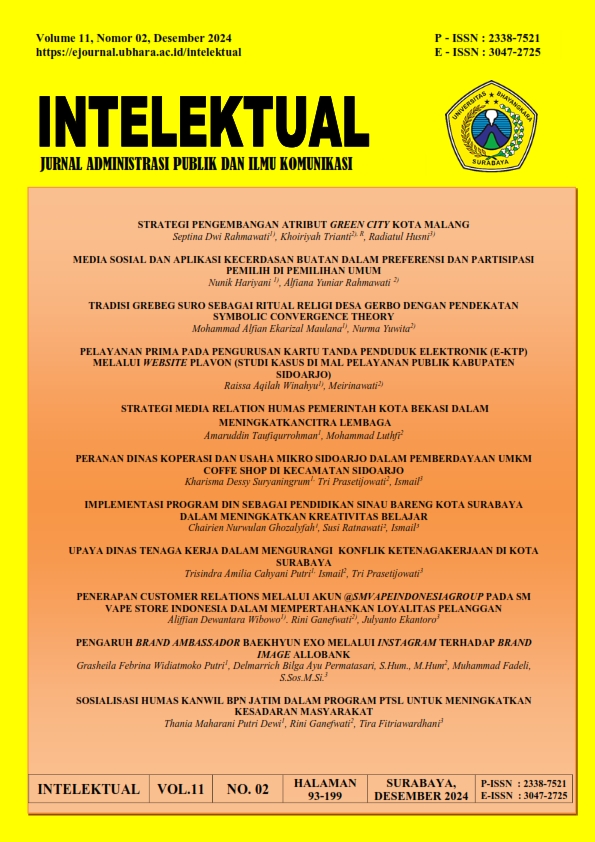Tradisi Grebeg Suro Sebagai Ritual Religi Desa Gerbo Dengan Pendekatan Symbolic Convergence Theory
Isi Artikel Utama
Abstrak
Grebeg Suro is an important tradition in Javanese culture which is carried out in Gerbo Village, Pasuruan Regency. This tradition combines religious, cultural and social elements, and is a symbol of togetherness and cultural identity of the local community. This research uses the Symbolic Convergence Theory (SCT) approach to analyze the symbolic meaning and communication processes that occur in the Grebeg Suro tradition. The method used is descriptive qualitative with data collection techniques through interviews and documentation. The research results show that the Grebeg Suro tradition not only functions as a religious celebration, but also as a means of strengthening social relations between village residents and strengthening their cultural identity. Analysis using SCT revealed fantasy themes such as togetherness and cultural identity that emerged in group communication during the Grebeg Suro event. The symbols in this tradition, praying together, sharing food, have deep meanings that reflect the cultural and religious values of the Javanese people in Gerbo Village. This research provides insight into the importance of the Grebeg Suro tradition in maintaining and strengthening social ties and cultural identity of the Gerbo Village community. It is hoped that the results can become a reference for efforts to preserve local culture and develop cultural communication studies.
Rincian Artikel

Artikel ini berlisensi Creative Commons Attribution-NonCommercial 4.0 International License.
Authors who publish with Intelektual: Jurnal Administrasi Publik dan Ilmu Komunikasi agree to the following terms:
- The author retains copyright licensed under Creative Commons Attribution-NonCommercial 4.0 (CC BY-NC 4.0), which allows others to remix, adapt, and expand on the author's work non-commercially, and even if someone else's new work must also acknowledge the author and is non-commercial, they do not need to license their derivative works on the same terms.
- Authors are permitted and encouraged to post their work online (e.g., in institutional repositories or on their websites) before and during the submission process, as this can lead to productive exchange, as well as earlier and greater citation of the published work ( See Impact of Open Access). Authors can archive preprints and postprints or publisher/PDF versions.

